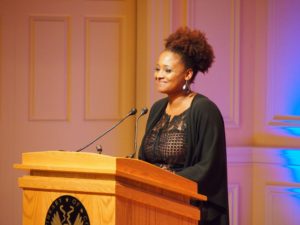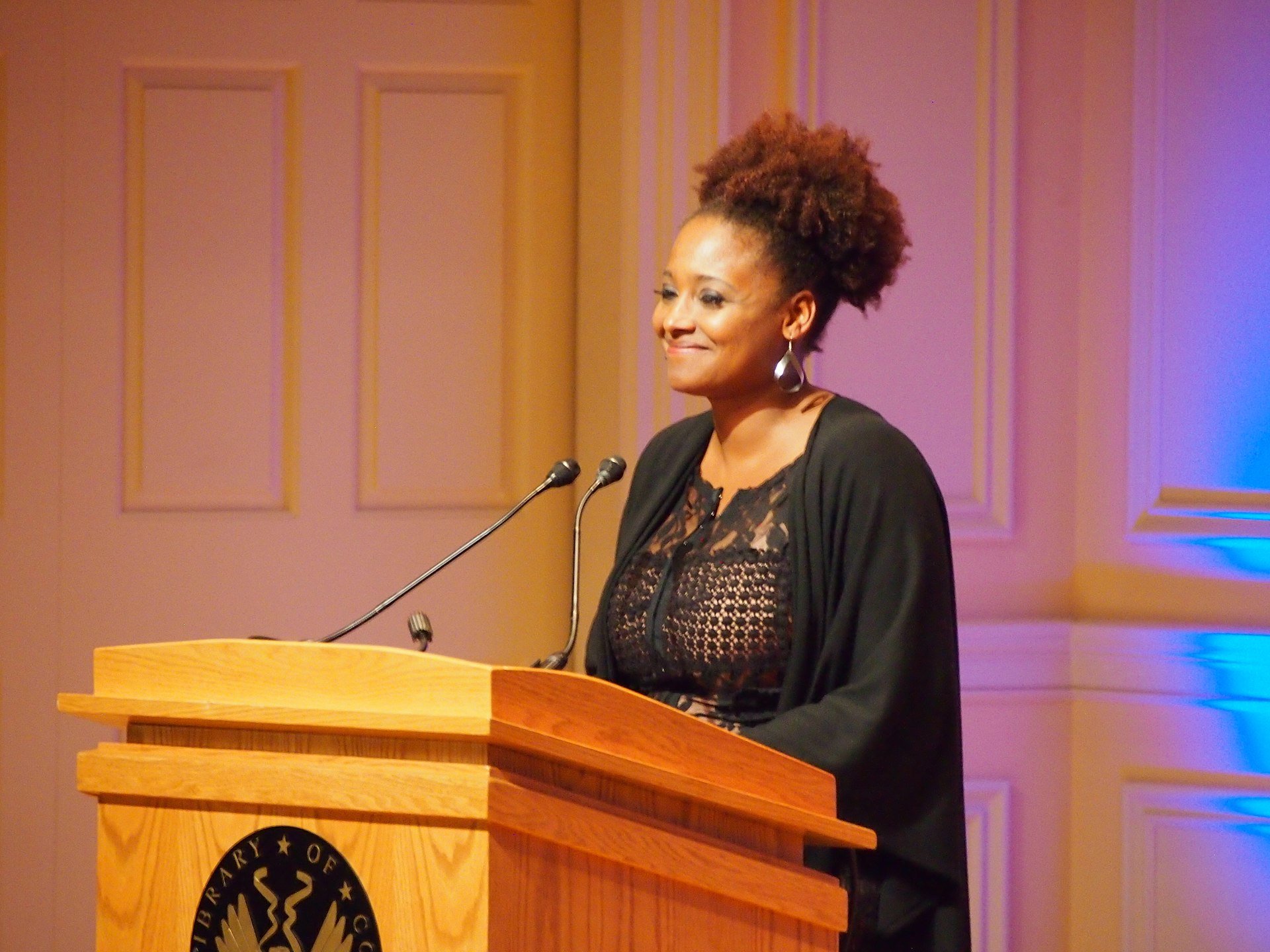Tracy K. Smith, the current Poet Laureate of the United States, gave a reading at Cemex Auditorium on Monday as part of the Lane Lecture Series, which funds visits by noted contemporary writers throughout the year. During the lecture, she read poems from her upcoming poetry collection, “Wade in the Water,” which will be released in April 2018. Smith, a graduate of Harvard University and Columbia University, was also a Stegner fellow at Stanford from 1997-1999. Since then, she has published three collections of poetry and a memoir, “Ordinary Light.” Her 2011 book, “Life on Mars,” was awarded the Pulitzer Prize for Poetry. Smith counts Elizabeth Bishop, Seamus Heaney and Rita Dove among her literary inspirations.
The Daily sat down with Smith to discuss her poetry, her role as poet laureate and the power of poetry to break down political and personal barriers.

The Stanford Daily (TSD): During the reading, you talked about fighting for a life of poetry. How have you fought to have poetry in your own life?
Tracy K. Smith (TKS): It started when I was an undergrad and felt that poems gave me access to a kind of clarity that I didn’t normally have, and I wanted to keep that and felt that no matter what else I was doing, I wanted to keep that the central preoccupation in my life. I think I was lucky enough to have teachers who were very generous through their example: This is how you make a life of poetry. This is how you do it: You write, you teach, you talk about this thing you believe in with young students who are interested and it feeds you. I feel like that’s what I’ve been really lucky to be able to do. When I was here [at Stanford as a Stegner Fellow], I began to understand how to find the material that was going to be important to me. I came here straight out of graduate school, and I knew that this was a thing that I needed to do, but I also was struggling to try to figure out, what do I keep writing about? Where do I look for ideas? Some of the silence I found myself in the midst of while trying to answer that question drove me to photography and to travel and to these other pursuits that essentially made me curious about other people, and I think that that has driven my poetry since then.
TSD: Do you have any advice for aspiring young poets?
TKS: Everybody says, “read, read, read,” and I think it’s really true. That’s essential. But I think it’s also important to read against your taste, to read the things you don’t love, and see if you can learn how they’re built and what they achieve and whether those tools can be useful to you. And I’m also always urging my students to allow their poems to be a site for them to wrestle with the things that are actually urgent to them as people. Don’t just think that poems have to be about certain beautiful, noble things. Poems can be about what you’re burdened by in your actual life, or what your deepest questions are drawing toward. Even if you don’t have the answers to them, poems can be useful in that pursuit.
TSD: On the opposite end of the spectrum, there are a lot of people who write off poetry as a genre and are just very intimidated by it. What would you say to them?
TKS: I would say, forget everything you’ve been taught about trying to get to the ulterior motives of a poem and just listen to the words. Trust what they make you feel, what they make you remember, and what they remind you of. Those are going to be really useful avenues into an authentic encounter with a poem.
TSD: What, in your opinion, is the role of the poet laureate?
TKS: I think it is to find ways of highlighting the value of the conversation around poetry in our day-to-day life. I’m going to be traveling and giving poetry readings and talking about the work of poets that I admire and whose work I think seems relevant to our sense of ourselves as Americans. What I’m excited about is that part of the charge seems to be talking about the rigor and the honesty in language that poetry requires, and what that fosters, which I think is a more honest sense of who we are and how we relate to each other and how we can better hear and imagine each other’s lives.
TSD: Do you think there’s a significance to being poet laureate as a woman of color in today’s political climate?
TKS: I think being a woman of color and speaking from that perspective is important. I feel very fortunate that that’s something that is immediately apparent to anyone who sees me. I think that’s great. I think that’s a way of saying that even if it seems like we have nothing to say to each other, even if it seems like we have nothing in common, we do have something that we can hear in one another’s voices. I think that what I’m really eager to say is that language can lead us into our better and highest selves. If we can stop accepting these ready-made phrases that tell us who we are and what we want and what we’re supposed to sound like, and we can really listen to the vocabulary of our feelings and the vocabulary of our fears and apprehensions, we can bridge some of the divides that we’re always being told characterize our nation at this moment. Maybe those divides are always there, but poetry is one more tool that might be valuable now.
Contact Erin Woo at erinkwoo ‘at’ stanford.edu.
